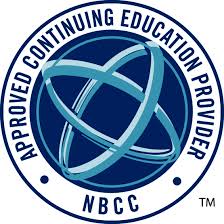Learn and Earn Over Lunch Series
Thanks for being part of our community!
The Learn and Earn over Lunch series is an opportunity to earn free NBCC approved continuing education credits from outstanding trainers, while you eat lunch! Join us online (via Zoom) from noon to 1:00pm Pacific Time every month on the second Wednesday.
In addition, feel free to take a look at our other training offerings as well as employment opportunities at PDBTI!
Brushing Up on Chain Analysis
Shireen Rizvi, PhD, ABPP, DBT-LBC
May 14th, 2025
Registration will close May 13th, 2025
At its core, DBT is a behavioral treatment that relies heavily on careful, precise behavioral assessment. The primary method for behavioral assessment in DBT is the “chain analysis” – a moment-by-moment assessment of the events leading up to and following a target behavior (e.g., self-injury). For myriad reasons, many clinicians have trouble conducting chain analyses. This webinar will be designed to help clinicians brush up on key chain analysis procedures and learn tips to refine and improve their approach. This one hour webinar is designed for clinicians with some direct clinical experience conducting DBT; basic DBT principles will not be reviewed.
Learning Objectives
By the conclusion of this event, participants will be able to:
- How to identify obstacles that interfere with problem definition and procedures in chain analyses.
- How to conceptualize and define antecedents and consequences associated with ineffective behaviors (e.g., self-injury) from a behavioral standpoint.
- How to generate and implement solution analyses to remediate ineffective behaviors.
Instructor | Shireen Rizvi, PhD, ABPP, is a licensed clinical psychologist, author, and researcher with over 20 years of professional experience. She currently serves as Director of Psychology Training and Director of DBT Services and Research at Montefiore Einstein in New York City. From 2009-2024, Shireen was Professor of Clinical Psychology at Rutgers University. She has authored over 100 peer-reviewed journal articles and book chapters as well as two books on Dialectical Behavior Therapy. She also has a forthcoming book on DBT skills for everyday life. Learn more about her work at shireenrizvi.com.
Metaphors for Teaching and Practicing Dialectics as a Skill
Andrea Gold PhD & Jesse Finkelstein, PsyD
June 11th, 2025
Registration will close June 10th, 2025
Dialectics represents the worldview of DBT. Teaching clients how to think and act dialectically can feel challenging, confusing, or overwhelming to therapists, particularly in the context of exquisite emotional sensitivity, heightened emotional reactivity, and a history of invalidation, as is typically the case with clients in DBT. In this one hour webinar, we will walk through the “Understanding dialectics in DBT” handout we developed to offer new tools in the instruction and application of dialectics. Using this handout, we will discuss and roleplay ways for therapists to teach dialectics through metaphors, which can make abstract dialectical concepts more concrete and relatable, enhancing client engagement and comprehension. In addition to ways to teach dialectics through metaphors, we will also present and discuss ways to teach dialectics through personal examples. By identifying and sharing real-life situations where two seemingly contradictory truths coexist (e.g., “I can be independent and still need support”), therapists can model flexibility and balance, guiding clients toward more nuanced perspectives and reducing black-and-white thinking.
Learning Objectives
By the conclusion of this event, participants will be able to:
-
Describe an overview of what is meant by dialectics in DBT using the “Understanding dialectics in DBT” handout
-
Describe the principles of dialectics using the “Plaid Venn diagram metaphor” to explain what is meant by “synthesis” in dialectics and to distinguish “synthesis” from “compromise”
-
Describe the principles of dialectics using the “Cylinder metaphor” to illustrate how seemingly contradictory perspectives can coexist
-
Describe at least one personal and client-relevant example to demonstrate dialectical thinking in action
Instructor | Andrea Gold, PhD, is a clinical psychologist and Clinical Assistant Professor of Psychiatry and Human Behavior at the Brown University Alpert Warren School of Medicine and the Pediatric Anxiety Research Center (PARC) at Bradley Hospital. She is the Team Lead of the DBT-X Track in PARC’s Intensive Program for OCD & Related Disorders. Andrea is passionate about dialectical behavior therapy (DBT) and exposure and response prevention (ERP), while living the ‘exposure lifestyle’ and ‘DBT lifestyle’ as all-in life philosophies. At PARC, she is developing an adaptation of DBT targeting exposure (DBT-X) for the subpopulation of adolescents with obsessive-compulsive disorder and anxiety disorders co-occurring with emotion dysregulation, suicidal and self-injurious behaviors, and BPD. She is also on the Board of Directors for the National Education Alliance for Borderline Personality Disorder (NEABPD) and the DBT Bulletin.
Instructor | Jesse Finkelstein, PsyD, is a clinical psychologist and Instructor in Clinical Psychology at Columbia University Irving Medical Center (CUIMC) Day Program. He specializes in evidence-based treatments for complex, multi-diagnostic disorders, with expertise in Dialectical Behavior Therapy (DBT), Exposure and Response Prevention (ERP), Prolonged Exposure (PE), and Cognitive Behavioral Therapy (CBT) for grief and trauma-related conditions.
Beyond clinical work, Dr. Finkelstein is a co-founder of Therahive, an e-learning platform for evidence-based psychoeducation, and co-editor of the DBT Bulletin. He is also the creator of The Game of Real Life, a DBT skills-based card game published by Penguin RandomHouse. His research focuses on digital applications of DBT skills training and the intersection of therapy, technology, and creative design.
Follow-up Training! Dr. Gold will be providing a 3 hours follow up training on December 12, 2025.
Treating PTSD in Dialectical Behavior Therapy: The DBT Prolonged Exposure Protocol
Melanie Harned, PhD, ABPP, DBT-LBC
July 9th, 2025
Registration will close July 8th, 2025
Dialectical Behavior Therapy (DBT) was originally developed to treat chronically suicidal and self-injuring individuals with multiple mental disorders and pervasive emotion dysregulation. From its inception, DBT has highlighted the role of trauma as a common etiological factor and posttraumatic stress disorder (PTSD) as an important treatment target for many clients who receive this treatment. The first two decades of DBT treatment development and research primarily focused on Stage 1 DBT to target behavioral dyscontrol, and DBT’s Stage 2 in which PTSD is targeted was left largely undeveloped. As a result, formal treatment of PTSD during DBT has historically been the exception rather than the norm. The DBT Prolonged Exposure (DBT PE) protocol, an adapted version of Prolonged Exposure (PE) therapy, was developed specifically to provide a structured method of treating PTSD within DBT. In this webinar, the rationale for and structure of the integrated DBT and DBT PE treatment will be described and the criteria for determining when a Stage 1 client is ready to begin DBT PE will be reviewed. The core procedures of DBT PE will be explained, including how in vivo exposure, imaginal exposure, and processing are used to treat PTSD. Finally, research findings supporting the safety and effectiveness of the treatment will be presented.
Learning Objectives
By the conclusion of this event, participants will be able to:
-
Describe the rationale for integrating PTSD treatment into DBT.
-
Explain the core procedures of the DBT PE protocol.
-
Review research findings evaluating the safety and effectiveness of the treatment.
Instructor | Melanie Harned, PhD, ABPP is a Psychologist and Coordinator of the DBT Program at the VA Puget Sound Health Care System as well as an Associate Professor in the Department of Psychiatry and Behavioral Sciences and Adjunct Associate Professor in the Department of Psychology at the University of Washington. Dr. Harned has previously worked as the Research Director of Dr. Marsha Linehan’s Behavioral Research and Therapy Clinics at the University of Washington (2006-2018), Director of Research and Development for Behavioral Tech, LLC (2014-2017), and Director of Behavioral Tech Research, Inc. (2013-2016). Dr. Harned’s research focuses on the development and evaluation of the DBT Prolonged Exposure protocol for PTSD as well as methods of disseminating and implementing this and other evidence-based treatments into clinical practice. She regularly provides training and consultation nationally and internationally in DBT and DBT PE and has published extensively on these treatments. She is a certified DBT therapist, a certified PE therapist and consultant, is board certified in Behavioral and Cognitive therapy, and is licensed as a psychologist in the state of Washington.
FREE CONTINUING EDUCATION CREDIT, NBCC APPROVED
 Participants who attend an event in this series will earn one free continuing education credit, NBCC approved.
Participants who attend an event in this series will earn one free continuing education credit, NBCC approved.
Portland DBT Institute has been approved by NBCC as an Approved Continuing Education Provider, ACEP No. 6326. Programs that do not qualify for NBCC credit are clearly identified. Portland DBT Institute is solely is responsible for all aspects of the programs.





